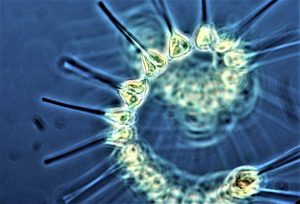Abiotic factors
Ecological factors are environmental elements that have an impact on fauna and flora. Two types of ecological factors are distinguished: biotic factors and abiotic factors. Abiotic factors are responsible for making the environment in which life takes place suitable for animal and plant species. This is why they are so important for ecosystems.
What abiotic is?
Abiotic is a term associated with biology and refers to any non-living environment. This term is opposed to the biotic term and allows to designate what is not part or is not a result of living beings. On the other hand, it is important to point out that abiotic components make up the biotope, while biotic components form biocenosis. Abiotic refers to the physical environment, the place of life in which biocenosis develops.
Abiotic factors are air, water, hydrostatic pressure, temperature, among others. For example, a plant (biotic) needs sunlight (abiotic), air (abiotic) and water (abiotic).
Types and examples of abiotic factors
Abiotic factors are the set of physical or chemical phenomena in the environment that influence life of living beings and their adaptation to their environment. In this way, abiotic factors play a fundamental role in the planet’s ecological balance.
Thus, abiotic factors do not depend on living beings. It is possible to classify them in the following categories:
Sideric factors
Refers to those earth, sun and satellite properties that have an ecological implication. Among them, we can find:
- Gravity: The force of gravity acts on muscular development, skeletal structure and fluid movement of species.
- Atmospheric pressure: Changes in atmospheric pressure at various points on the earth cause air to move from one place to another, giving rise to winds.
Edaphic (soil) factors
Species development is variable depending on structure, composition, humus content and richness of soil microbial life.
- Soil structure: This factor refers to soil organization or spatial organization of the soil particles.
- Granulometry: Soil texture is determined by the thickness of the soil particles (sands, silts, clays).
- Mineral salt content.
- Humus content: The nature of humus depends on the intensity of mineralization and humidification, influenced by biological activity. This factor is conditioned by other factors such as climate, vegetation, the nature of the parent rock and the arrangement of the relief.
Climatic factors
- Temperature: This is the most important climatic factor since all metabolic processes depend on it. For example, this factor is very useful for ectodermal organisms, i.e. those that do not have the capacity to regulate their body temperature such as fish, amphibians and reptiles. On the other hand, endoderm have the capacity to regulate their temperature thanks to the production of energy by internal mechanisms.
- Sunlight: This is the main source of energy for living beings. This factor acts more on green plant species than on animal species. It is essential for photosynthetic living beings. The photoperiod, the quantity and quality of light received by living organisms will influence their biology, morphology and behavior. On the other hand, the number of hours of light changes according to the seasons of the year and latitude.
Chemical Factors
- Air: This factor is indispensable for life on Earth. It brings oxygen and carbonic gas to living beings. It also provides nitrogen and carbonated water that are permanently cycled in the biosphere.
- Water: This liquid factor is indispensable for aquatic or terrestrial organisms. Water in natural environments contains dissolved mineral substances that may influence the presence or absence of some species.
- pH: The acidity of the medium plays an important role in organism distribution, i.e. basophils living in an alkaline medium, acidophiles living in an acidic medium and neutrophils living in a neutral medium.
- Mineral ions: Chlorine, magnesium, potassium, among others, are indispensable for the life of animal and plant species.
- Salinity: This factor plays a determining role in aquatic environments. Thus, there are animals that live in fresh or salt water according to their characteristics.
How to cite this article?
Briceño V., Gabriela. (2019). Abiotic factors. Recovered on 24 February, 2024, de Euston96: https://www.euston96.com/en/abiotic-factors/










